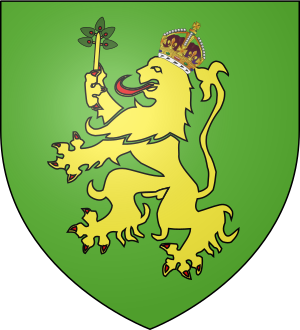(I sent the following to Rod Beckstrom today)
Rod Beckstrom
Chief Executive Officer
Internet Corporation for Assigned. Names and Numbers
4676 Admiralty Way, Suite 330
Marina del Rey, CA
90292-6601.
USA
[Docket No. 110207099-1319-02]
OPEN LETTER
Dear Rod:
It was good to see you in Singapore, if only fleetingly.
As you were present in San Francisco back on March 17th 2011, you are of course aware that during the Public Forum in San Francisco I made use of the community’s opportunity to ask questions on the main topics at each meeting directly to the Board and in front of the rest of the community, asking the Board about ICANN’s commitment (or not) to fundamental human rights. The full transcript is in the usual place that is available to you, and is reproduced at
http://news.dot-nxt.com/2011/03/17/transcript-public-forum
As you are also aware, I still remain without the benefit of the several-times promised-by-you answer.
Certain current and former Board members have privately expressed their irritation with the form of my question. Notwithstanding this, and regardless of the form of my question (leading or otherwise), this particular question has to be one of the most remarkable as a result ICANN’s shamefully long silence in officially responding to it.
I also understand certain comments were recently made by one or more members of the Board about my question (in my absence) before the entire assembly of the Singapore ccNSO meeting — which is open to both non-members (as we then were) and to members — despite that I was unavoidably unable to be there.
Although this seems to me to be no more than mildly discourteous, I am looking forward to reading the transcript of that meeting to see if it can throw any light on your continued refusal to answer the question.
However I have been given to understand that scuttlebutt has it that the Board might now have decided that it requires further particulars before it would be prepared to answer my question.
I am puzzled mightily by this, if it is true.
If that were the case, surely you should have contacted me in writing some four months ago (my email address is well known to you) or in person.
Back in March I wished to have the answer to this legitimate query in order to be able to respond fully and coherently to the Department of Commerce‘s Notice of Inquiry regarding the IANA function.
I asked the question in March 2011, and I expected a timely answer.
I still expect an answer even though July is almost with us. I shall keep asking for an answer until the organisation which you lead has the courtesy to respond to it.
The ICANN Chairman, Mr Dengate-Thrush, rather optimistically suggested I might get one by the end of the day (i.e by 18th March 2011) in which I asked the question.
Whilst I did not share his well-intentioned optimism, I did expect ICANN to provide an answer to enable me to respond to the Department’s Notice of Inquiry before their 31st March 2011 deadline.
The more so, as I took the trouble to provide my enquiry both to ICANN’s Chairman, and to ICANN’s General Counsel not only in writing but also that same day.
Yet I was to be unsurprisingly disappointed when ICANN studiedly failed to answer the question, despite repeated reminders both to yourself, and to the Chairman, and I was therefore forced to complete my submission to the United States’ Department of Commerce without the benefit of the information asked for.
In that light, and in the subsequent failure to respond at all, it seems to me that ICANN intentionally failed to answer and that failure was motivated by a desire to avoid adverse comment in my submission to the Department.
If, in fact, this was so, (and I hope it was not), this transparent ploy unfortunately had the opposite effect you intended, as I was forced, in my submission to the Department to highlight ICANN’s failure to commit to basic human rights compliance.
A Further Notice of Inquiry has now been issued by the US Government with a deadline of July 29th 2011.
I trust your organisation will not employ the same tactic to inhibit input and comment in response to that?
As you are the figurehead of an international global organisation dealing with rights and obligations world-wide ICANN is in a unique position and you have a unique responsbility.
- in policy-making ICANN acts as a Legislature for the Domain Name System.
- in carrying out of the IANA function, ICANN appears to act, in some part, as the DNS Executive Branch, and
- in making judgments on applications for new Top Level Domains, or changes to existing Top Level Domains, ICANN acts as a Judicial Branch.
In doing all of those things, it seems to me that the values of commonly accepted principles of fundamental rights of civilised nations must always be respected.
Why can you not bring yourself to agree with me on this? It seems self-evident to me.
And it also seems to me these fundamental principles should not apply only to public authorities (such as the GAC) but also to organisations such as ICANN itself, among other things by reason of the Guiding Principles for corporations that was presented to the United Nations’ Human Rights Council by Prof John G Ruggie of Harvard Law School.
See http://ec.europa.eu/enterprise/policies/sustainable-business/files/business-human-rights/guiding_principles_business_and_hhrr_en.pdf
and, in particular, the Foundational Principles, pp. 13 et seq.
This was also strongly underlined by Commissioner Kroes’ recent public statement on what matters on the Internet (see http://blogs.ec.europa.eu/neelie-kroes/i-propose-a-compact-for-the-internet ) , in particular that :-
“there’s been a lot of discussion recently about principles which do, or should, underpin the network. The G8 recently agreed a few – principles like openness, freedom, non-discrimination and respect for human rights. Other bodies, including the OECD itself, are also developing their own.”
Particularly in this time during the Arab Spring of 2011, where the Internet has become a powerful force for good, for the promotion of democracy and human rights (in Iran, Libya, Syria and elsewhere around the world) I believe it would have been far preferable better that ICANN should grasp the opportunity to proclaim a commitment to fundamental human rights, to set an example to others, and not to be cowering in the shadows as if I’d asked you whether you’d been scrumping apples.
I therefore respectfully request a written or emailed reply to my enquiry of 17th March 2011 by return email.
If you insist on maintaining your current apparent position of procrastination and obfuscation, please provide me with a thorough and reasoned explanation of your decision not to answer the question, the rationale thereof and the sources of data and information on which ICANN relied in making this decision, again by return, so I can assist the Board in its deliberations.
With all good wishes
Nigel













